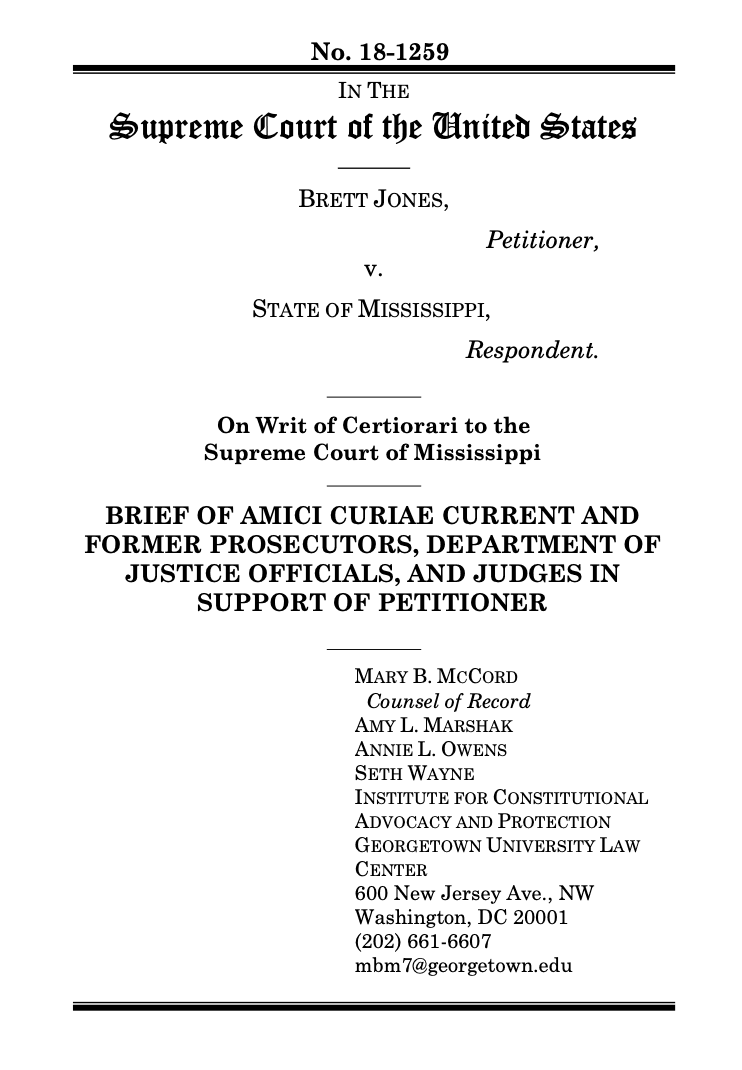
Summary of Argument
Prosecutors and judges recognize that every homicide is tragic for the victims and survivors and that the punishment for those found guilty of such crimes should be substantial. But prosecutors and judges also have an interest in ensuring that those punishments are fair and proportionate, taking into account not only the circumstances of the crime and its impact on victims and survivors, but also the characteristics of the offender. This Court has recognized that juveniles are “constitutionally different from adults for purposes of sentencing,” and that a sentencing scheme that imposes mandatory life without parole on juvenile homicide offenders “poses too great a risk of disproportionate punishment.” Miller v. Alabama, 567 U.S. 460, 471, 479 (2012). Indeed, the Court has required that sentences of life imprisonment without the possibility of parole be reserved solely for “the rare juvenile offender who exhibits such irretrievable depravity that rehabilitation is impossible and life without parole is justified.” Montgomery v. Louisiana, 136 S. Ct. 718, 733 (2016). Accordingly, the Court expects that sentencing juveniles “to this harshest possible penalty will be uncommon.” Miller, 567 U.S. at 479.
The trial court’s handling of Brett’s resentencing in this case, and its approval by the Mississippi Supreme Court over the vigorous dissent of four justices, fail to effectuate this Court’s mandate and undermine confidence in the fairness of the criminal justice system. The trial court resentenced Brett to life without parole without determining whether he falls within the category of irretrievably depraved offenders or even evaluating in any meaningful way his “youth and attendant characteristics” and his “possibility of rehabilitation.” Miller, 567 U.S. at 483, 478. If left undisturbed, the Mississippi Supreme Court’s approval of such an approach would allow courts in the state to sentence almost any juvenile homicide offender to life without parole—including those who possess the capacity for rehabilitation— without a meaningful opportunity for appellate review, so long as the trial court makes some acknowledgement of the Miller factors. This type of disproportionate and sub silentio sentencing does not satisfy the constitutional limitations imposed by this Court on juvenile punishment and undermines public confidence in the administration of justice. Amici urge this Court to reverse the Mississippi Supreme Court’s decision and require sentencing courts to find permanent incorrigibility before a juvenile homicide offender may be sentenced to life without parole.